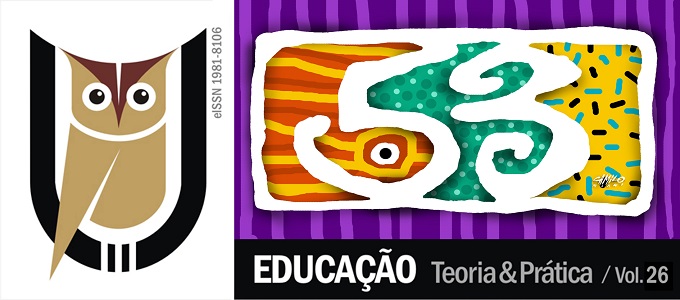THE PRIVATE CONSULTANCY IN EDUCATION MANAGEMENT AT CAMPINAS EDUCATION PUBLIC SYSTEM
DOI:
https://doi.org/10.18675/1981-8106.vol26.n53.p628-649Keywords:
assessoria privada, gestão educacional, avaliação institucional, participação, gerencialismoAbstract
This article aims at contributing to the comprehension of current managerial reforms that reconfigure the public administration. Within the agreement signed in 2013 between the Municipality of Campinas and Comunitas organization, we analyze specifically the work plan of Falconi Company in articulation with the Municipal Education System, and its proposal of providing a results-based management consultancy. At the same time, this Education System has been implementing a Participatory Institutional Assessment Policy, which intends to be an alternative to managerial policies, in the wake of societal public administration. The article makes a documentary analysis of the private consultancy proposal, place it in a broader context of the Third Way strategies, and discuss to what extent the participation of partner organizations in the management of Campinas educational policy represents a "sum of efforts" in order to improve education, or a confrontation with the logic of participation advocated by Participatory Institutional Assessment Policy. Keywords: Private Consultancy. Education Management. Institutional Assessment. Participation. Managerialism.Additional Files
Published
How to Cite
Issue
Section
License
Authors who publish in this journal agree to the following terms:
a) Authors assign copyright to the journal, with the work simultaneously licensed under the Creative Commons Attribution License that allows sharing of the work with acknowledgment of authorship and publication in this journal.
b) The policy adopted by the Editorial Committee is to assign copyright only after a period of 30 months from the date of publication of the article. After this time, authors interested in publishing the same text in another work must send a letter to the Editorial Committee requesting the release of the assignment of copyright and wait for a response.
c) This journal provides public access to all its content, since this allows greater visibility and reach of published articles and reviews. For more information on this approach, visit the Public Knowledge Project, a project that developed this system to improve the academic and public quality of research, by distributing OJS as well as other software to support the public access publication system to academic sources. The names and email addresses on this website will be used exclusively for the purposes of the journal and will not be available for other purposes. This journal provides open any other party  This work is licensed under a Creative Commons License
This work is licensed under a Creative Commons License











